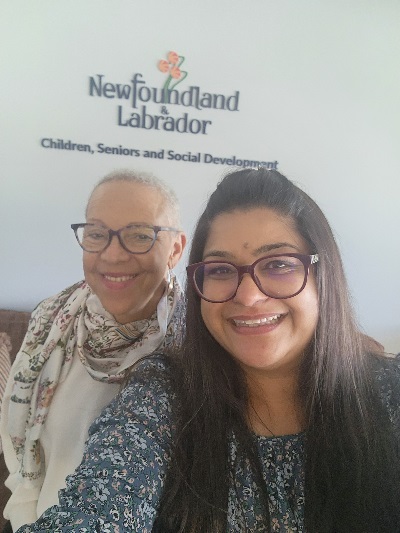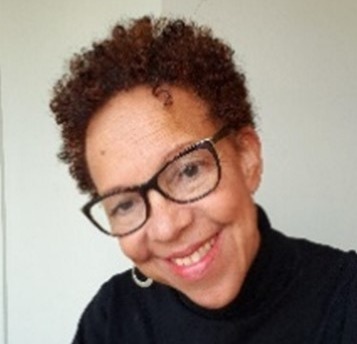
Newfoundland, We Thank You!
In June, I was privileged to deliver two in-person learning sessions in St. John’s, Newfoundland, as part of the National Outreach Project. I was taken aback by the beauty of this province and the welcome we received. Newfoundland embraced change by welcoming us to learn, teach, and initiate partnerships. Newfoundland is the second province to partner with CWICE, as part of our National Outreach Project.
The CWICE National Outreach Project is a capacity-building initiative made possible by the generosity of the Northpine Foundation and geared for child welfare professionals who are likely to support children, youth, and families at the intersection of immigration and child protection. After participating in the training sessions, each province can consult with CWICE on a limited number of cases.

Over two days, Nadia Drepaul and I delivered the one-day training to two distinct groups of child welfare professionals. The training focused on refugees and government-assisted refugees, and the subject matter was serious enough to cause many to reflect on how their family history intersected with specific migratory waves since the arrival of the first Europeans.
The deep reflection also helped participants understand how the pre-arrival experiences of displaced refugees affect the behavioral patterns and family dynamics long after they arrive in Canada. This was also an opportunity for many to have “Aha” moments upon learning through videos and case scenarios about the plight of refugees living in unsettling conditions.
After a sobering discussion, it was time to shake things up a little; we invited the participants to stand up and “shake it” in the middle of the training day (you should see the look of disbelief!). The light exercise and a little laughter that followed made the afternoon discussions flow easily.
Many were surprised to learn about the challenges faced by refugees who arrive in Canada through the Resettlement Program, especially at the one-year mark. Identifying where the stress points are allows child welfare professionals to connect families with the appropriate services before a crisis arises.
It was rewarding to hear key decision-makers comment on the benefits of reflecting their clients’ immigration status in the case planning. This ties in with the importance of terminology, as service eligibility often depends on the individual’s immigration status and admission stream.
Another highlight of the training was the participation of the Association for New Canadians (ANC) during their brief presentation. Participants found the interaction with the leading agency providing settlement and integration services in their region to be very enlightening. Attendees were able to ask ANC staff about the eligibility and availability of various services and programs. That initial dialogue could lead to future collaborative relationships and better outcomes for resettled families who are involved with the child welfare system. Our welcoming partners, the Newfoundland Department of Families and Affordability, along with the Association for New Canadians, made our training phase in Newfoundland a success, and for that, we thank you.
Here are some of the comments made by participants:
“I now have a better understanding of the immigration processes and the many layers that come with it.”
“I now understand the terminology and how immigration status affects eligibility for services.”
“I can’t tell you how important this learning was; It aligns with the needs of our province.”
About the author:
 Fatima Mukai is a Child Protection Worker and Immigration Specialist at Peel Children’s Aid Society in the Child Welfare Immigration Centre of Excellence (CWICE). Fatima has 22 years of experience working with vulnerable families and joined the Child Welfare Immigration Centre of Excellence in 2020 as an immigration specialist. More recently, Fatima has joined the National Outreach Project and continues to contribute to CWICE’s capacity building at the national level. Fatima joined Peel CAS in 2017 as a specialized ongoing worker, with a team dedicated to servicing families and children experiencing immigration and settlement issues.
Fatima Mukai is a Child Protection Worker and Immigration Specialist at Peel Children’s Aid Society in the Child Welfare Immigration Centre of Excellence (CWICE). Fatima has 22 years of experience working with vulnerable families and joined the Child Welfare Immigration Centre of Excellence in 2020 as an immigration specialist. More recently, Fatima has joined the National Outreach Project and continues to contribute to CWICE’s capacity building at the national level. Fatima joined Peel CAS in 2017 as a specialized ongoing worker, with a team dedicated to servicing families and children experiencing immigration and settlement issues.
